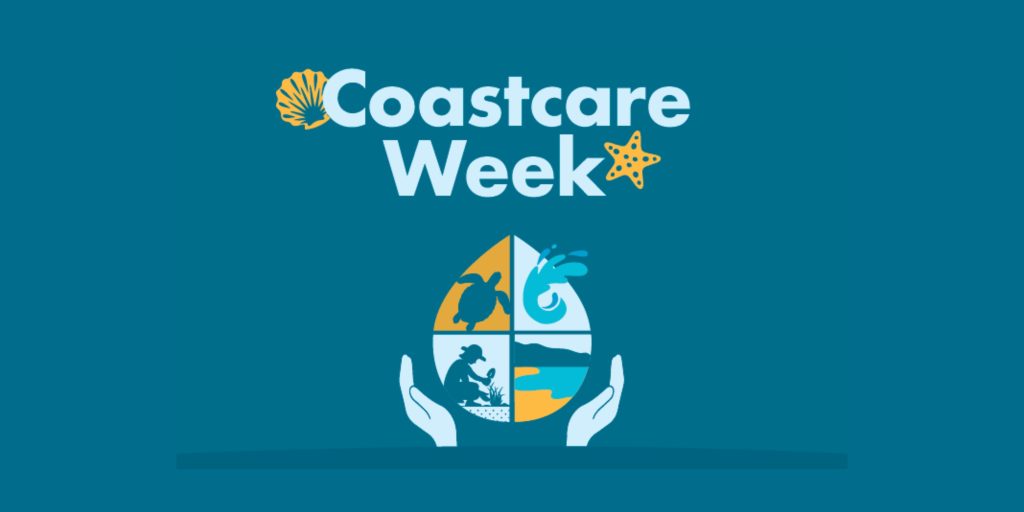Coast Care Week is the perfect opportunity for teachers to empower students to understand and protect Queensland’s unique coastal environments. From the golden beaches of the Sunshine Coast to the world-famous and epic Great Barrier Reef, students can explore the wonders of our local shores while learning how human activity and climate change threaten these fragile ecosystems.
This year, why not try experiential and project-based learning? Here’s a set of fresh, hands-on ideas for the classroom.
Coastal Citizen Scientists
- Age Group: Upper Primary & Secondary
- Activity: Students adopt a local stretch of coast (or use virtual tools if a field trip isn’t possible) to monitor
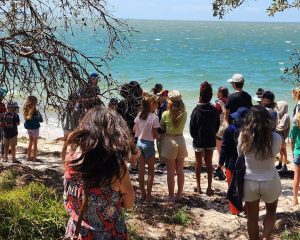 environmental indicators: sand erosion, litter, water clarity, or marine life sightings.
environmental indicators: sand erosion, litter, water clarity, or marine life sightings. - Twist: Students upload findings to a shared Padlet board. This builds a real-time picture of local coastal health and encourages collaboration.
- Learning Outcome: Students practice data collection, observation, and scientific reporting while understanding the impact of humans on coastal ecosystems.
Ocean Life Education can assist in bringing learning to life with a Human Impact themed incursion or excursion featuring live marine animals at your school.
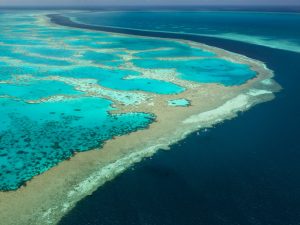 Barrier Reef Rescue Challenge
Barrier Reef Rescue Challenge
- Age Group: Upper Primary & Secondary
- Activity: Students design innovative solutions to help protect the Great Barrier Reef. Ideas could include reef-friendly sunscreen campaigns, artificial reef structures, or awareness programs targeting tourists.
- Twist: Turn it into a “Shark Tank”-style pitch where students present solutions to a panel of teachers or local environmentalists.
- Learning Outcome: Encourages problem-solving, creativity, and understanding of coral bleaching and reef conservation.
Microplastic Detective Hunt 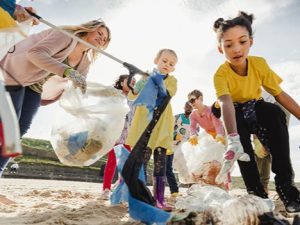
- Age Group: Primary
- Activity: Using sand, water trays, and a simple sieve, students search for microplastics and other tiny pollutants hidden in “coastal samples.”
- Twist: Incorporate a citizen science element: submit collected data to Australian research projects tracking microplastic pollution.
- Learning Outcome: Students see firsthand how tiny pollutants threaten marine life and learn that even small actions (like reducing plastic use) make a difference.
Ocean Life Education can assist in bringing learning to life with a Human Impact themed incursion or excursion featuring live marine animals at your school.
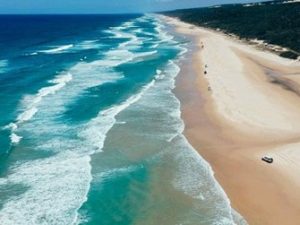 Coastal Storytelling Project
Coastal Storytelling Project
- Age Group: Primary & Secondary
- Activity: Students research a Queensland coastal area (e.g., the Whitsundays, Fraser Island, or Moreton Bay) and create a short story, comic strip, or short video from the perspective of a local animal, coral, or mangrove.
- Twist: Encourage creative storytelling that also teaches about threats like habitat loss, climate change, or coral bleaching.
- Learning Outcome: Fosters empathy, environmental literacy, and creativity while teaching students about ecosystems and biodiversity.
Classroom Climate Action Campaign 
- Age Group: Secondary
- Activity: Students investigate how climate change affects Queensland’s coasts and coral reefs. They then create a multi-media campaign for the school or local community promoting climate action.
- Twist: Include social media posts, a mini-podcast, or even a short school news segment.
- Learning Outcome: Students connect local ecosystems to global climate issues and develop digital literacy, communication, and advocacy skills.
Bringing Coast Care Week Alive
To make these projects truly effective:
- Collaborate with Ocean Life Education and/or local environmental groups, such as Coolum Coast Care and Sea Shepherd Queensland to examine animals and environments firsthand.
- Use real-time data from government or NGO sites for reef and coastal conditions.
- Encourage cross-curricular integration: science (ecosystems, climate change), English (storytelling, presentations), and civics (community engagement).
By focusing on hands-on projects, storytelling, and citizen science, Coast Care Week can spark curiosity and inspire students to become lifelong protectors of Queensland’s shores and the Great Barrier Reef.
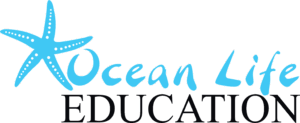 About Ocean Life Education
About Ocean Life Education
Ocean Life Education provides interactive, curriculum-aligned marine incursions that bring ocean learning to life. Our experienced marine educators visit schools and community groups with live marine animals and hands-on activities, giving students an exciting opportunity to explore marine habitats, biodiversity, and conservation in a meaningful, engaging way.
Through these immersive sessions, we ignite curiosity, encourage environmental responsibility, and inspire young Australians to protect and value our incredible marine environments.



